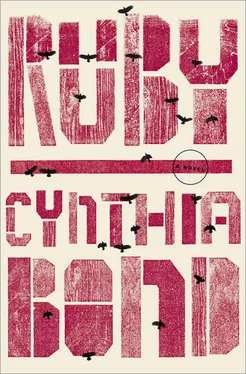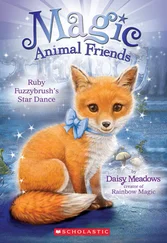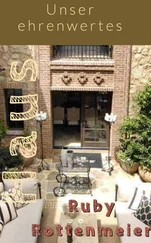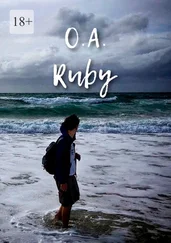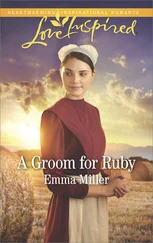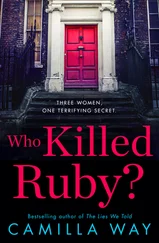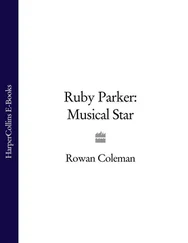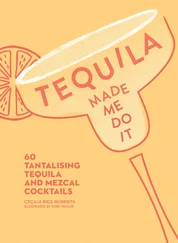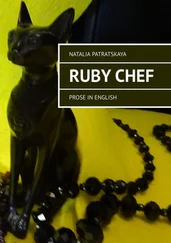Ruby snapped back to the moment at hand. “Then can you arrange a ride? I’ll pay twenty-five dollars.”
The man jumped to attention, “See what I can do. I’ll be back directly, Miss.”
She looked back at the COLORED WAITING AREA sign. Nine years after the Brown decision and it still creaked boldly. Before she’d left Manhattan, her friend Billy, a costume designer at the X Theater in Greenwich Village, had been weeping. He’d equated the South for Northern Blacks with Nazi Germany for Jews. That it was insane to go. He’d said that Ruby hadn’t seen Maggie in nearly a decade, and that she should be as dead to her as the pickaninny, backwards town. For which Ruby had slapped him.
She had met him at The Pony in the East Village one night and after three dirty martinis apiece, Billy, a pale redhead from Boston, told her he was queer. She told him she was a rich woman’s platonic whore, and the two had become fast friends. They had crashed downtown “tea parties” and smoked weed with artists who had rambled for hours about abstract expressionism versus pop art. Billy had slept with an unnamed famous on-the-road writer who pretended to be straight, and they were both in love, from afar, with the short, pudgy author famous for being gay. At night, when Mrs. Gladdington was out of town, the two had slept together in Ruby’s narrow bed, whispering their dreams, her head on his shoulder.
Ruby breathed the smoke in — hard. She was a wet smoker, filters always damp and shit brown when she crushed them. Maggie was the opposite, even though she inhaled like she was sucking in air after a hard run, the tips were as dry as straw. But everything Maggie did was clean. She made rolling her own cigarettes with one hand an art form. Each one perfectly like the next.
Ruby tapped the ash, her lipstick bright along the end, then brought it back to her mouth. Fucking Maggie , she thought, Fucking Maggie and that goddamn telegram . The fact that she had never wanted to come back home was another matter. It was Maggie’s fault she was there. Maggie yanking her back to Liberty Township, where Black folks waved the heat away with Jesus fans. Everyone was slow. Blood flowed in veins like molasses, sweat stuck to clothes like blessing oil.
Fucking Maggie . How she stood over Ruby before she left for New York, stiff as cast iron but crying in spite of herself. It had been the first time, to hear Maggie tell it, that she had ever cried. Ever. It was, in any case, the first time Ruby had ever seen it. She’d told Maggie she despised the town — what it had taken and how it had used her as a spittoon.
Ruby remembered how Maggie’s own mama Beulah Wilkins had hated Liberty Township. How she used to say, nearly every Sunday when they were children as she cleaned her shotgun, “Town cursed.”
She’d continue, “Not one of them fools had the gumption to incorporate with the county. So Liberty ain’t under America, God, nothing. Hell, place tweren’t never baptize by nobody’s law.” Then she would push the oil rag down her barrel. “Which is why the Devil write it down in his book, got many Liberty men soul on his roster.”
Ruby had known that Maggie would never leave. She’d known that Maggie would take in wash, catch striped bass and catfish at Marion Lake, that she would work like a plow horse, drink herself stupid, get into scuffles at Bloom’s, and cheat at poker. That over time, creases would be smoothed like damp clay into her face, until bit by bit they would dry and harden; that her hair would become dusted gray, cheeks sinking into her teeth, her muscles shrinking to her bones. Ruby knew that one day some fevered complaint would steal through Maggie’s proud body until she could barely lift her head to swallow a spoonful of soup; that she would light cigarettes in spite of the shouts and condemnations of the sisters she had yet living. That those same sisters would crowd around her as she sipped in her last breath; they would be her pallbearers and only mourners. That Maggie would lay in a coffin, under sugar sand and red clay, until her bones blanched and her flesh wormed away. And that she would never leave the piney woods.
They had met at the edge of a cotton field when Ruby was three and Maggie five. Ruby’s grandmother and Maggie’s mama sweated oceans under the Texas sun as the two children sat under a faded umbrella and sucked on sugarcane. Ruby remembered how everyone said that the two of them had locked eyes and hearts in the time it took a star to twinkle. As they grew older, they all but lived in the chinaberry tree. The branches were low enough for a seven-year-old to easily pull herself up. Legs dangling beneath the branches. Maggie would always find her there. Even through the worst of it, when Ruby was caught like a bird under the claws of a great cat, Maggie would climb up and sit beside her. Give her gifts she’d stolen from P & K, and even more boldly, from the five-and-dime in Newton, where they would have beaten her raw. Thimbles and Butterfingers, barrettes and embroidered handkerchiefs, Cracker Jack — Maggie would always let Ruby keep the coveted prize inside the box. They would pull taffy and wrap it around their wrists like soft bracelets before eating it. Maggie would find her clear stones down at Marion Lake, or a bluebird feather. She would bring her Clem Rankin’s peaches, because Ruby didn’t have the stomach for his buckshot. In the evening, before Papa Bell died, they sat under that tree staring into the blueberry sky, listening to his fiddle — the horsehairs thick with resin, and metal strings casting a line of sound that sailed through the trees and caught their hearts. Ruby would then put her head against Maggie’s wide chest, and feel her arms like supple steel around her. There had been a comfort to the way Maggie smelled, like Juicy Fruit and tobacco. When she got older and she began smelling like the wash she was taking in, Ruby saw it crush something inside of her. For Maggie was meant to be the king of something. She was meant to puff out her chest and conquer worlds. But Ruby watched her join the army of Black folks dragging off to Newton, their souls crumpled in their handkerchiefs until suppertime. And while Maggie didn’t droop her head as much as the rest, it still fell a bit to fit through the door of servitude.
But before that, when they were free under the chinaberry, Maggie told Ruby that she wished she had a fine ring to give to her. She said she wished for a steeple someplace that would hold them up high in the eyes of God. But Maggie could not steal a ring good enough for Ruby, for they kept them under glass at the five-and-dime, and the only rings in Liberty were on the hands of some married ladies. So Maggie had wrapped Ruby all the closer, always holding her like she was made of lace and glass, and promised she would get a ring befitting her Ruby Bell. Not long after, she had gone to work, and not long after that, Ruby had lost her.
To leave Maggie, Ruby had had to forget the chinaberry and the blueberry sky, the crickets and cicadas who accompanied Papa Bell. The mockingbird, who came after the fiddle was put away, and sang every birdsong in the forest, the wood thrush’s and the pine warbler’s, even making up his own tunes. Ruby had to push all of that away and turn into that hard clear river stone. She had to turn her tongue into a sharp stick — otherwise she would have stayed. She had to all but kill Maggie to leave her. She had been too young to know she could have kissed her good-bye. She had been too young to know that a person can still hold on to the shared secret of love and walk away. She hadn’t known, until she reached Manhattan, that she had murdered a part of herself as well. That it would be years until that part came to life again.
RUBY FELT her eyes grow wet, a knot form in her throat. She swallowed it down — as she had done the whole of her life.
Читать дальше
